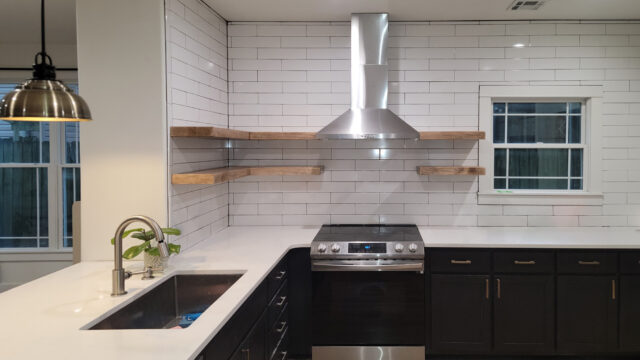
Embarking on a home renovation, whether it’s a single room refresh or a comprehensive house transformation, is a significant endeavor. For minor updates, like changing fixtures or surfaces, you might manage the project yourself or hire specialized professionals for certain tasks, such as tiling or installing cabinets. However, for complete room renovations, enlisting a general contractor could be a wise investment. Contractors bring expertise in navigating building projects, managing permits, inspections, labor, equipment, and materials, ensuring a smooth renovation process. The challenge lies in finding a trustworthy contractor who can efficiently fulfill your project’s requirements. Follow these guidelines to successfully hire the right contractor for your renovation.
1. Clarify your project vision before seeking a contractor.
You’re in charge of your renovation, so before consulting contractors, define your project goals and desired features. If translating these goals into specific design elements or products seems daunting, consider engaging a design consultant or a design-build firm for guidance.
2. Obtain multiple quotes from contractors.
Aim to get at least three quotes from different contractors to compare. Gathering more quotes can provide a broader view of the market and help you understand the value each contractor brings. This comparison can reveal insights into the cost and quality differences among the contractors.
3. Conduct thorough background checks on potential contractors.
Even if you’re considering a contractor recommended by someone you trust, verify their credentials. Confirm the contractor’s business name, address, state license, and insurance coverage. Check the license and insurance validity and look into any past or pending complaints or legal actions.
4. Examine a contractor’s work history and professionalism.
Assess whether a contractor’s skills align with your project needs by reviewing their past work. Look for projects similar to yours, high-quality materials, and client satisfaction. Pay attention to signs of professionalism, like prompt communication and adherence to appointments, as these can reflect on the quality of their work.
5. Establish job site rules.
Communicate your expectations for safety and conduct on the job site, including background checks for all workers, parking arrangements, bathroom use, and smoking policies.
6. Understand the financial aspects of your project.
Some contractors offer free estimates, but detailed projects might require a paid “scope of work proposal.” This proposal should itemize costs and describe the tasks and materials involved. Be cautious of contractors who demand cash payments or full payment upfront. Always insist on a detailed contract before starting the work.
7. Plan for resolving any disagreements.
Choose a contractor you can communicate with effectively. Reputable contractors will prefer clear written agreements to protect both parties. Discuss how unexpected issues or disputes will be handled, emphasizing the importance of written agreements for changes or additional costs.
8. Pay attention to contract specifics.
Ensure your contract includes start and finish dates, details about building permits and fees, a description of the services and materials provided, payment schedules, subcontractor management, and remedies for defaults. Protect yourself from liability for subcontractors’ unpaid wages by stipulating this in the contract.



